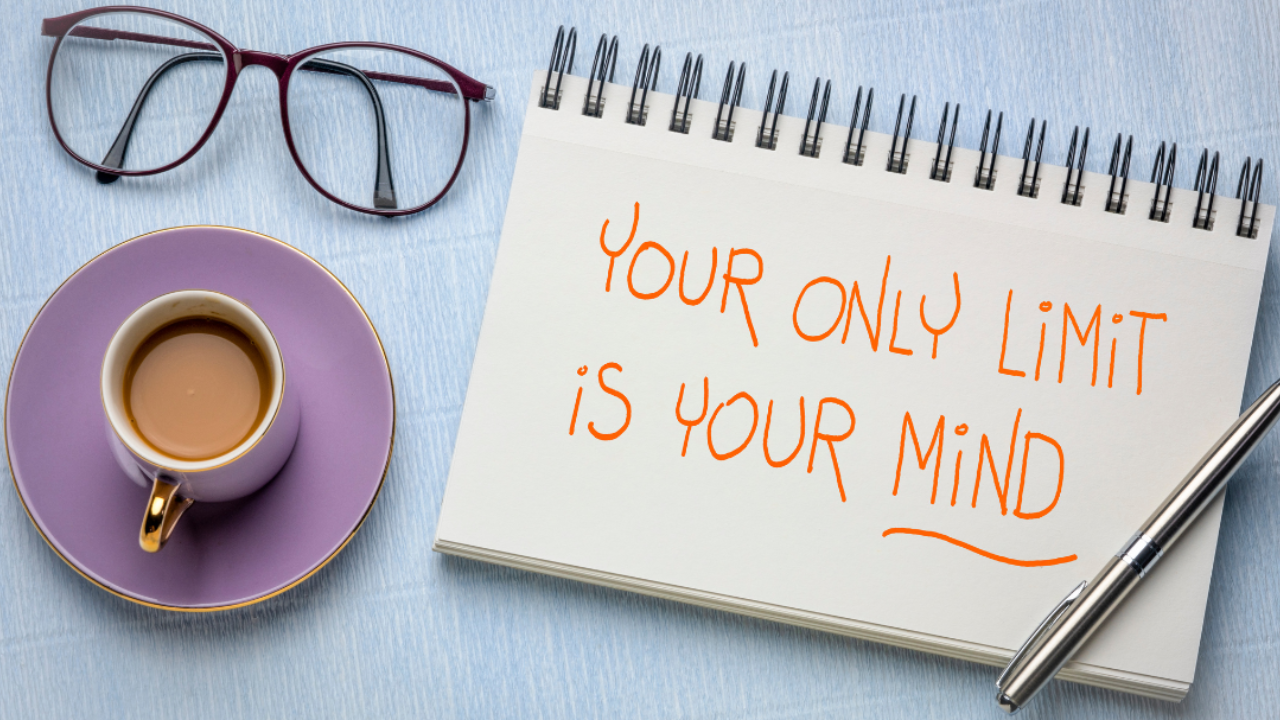How To Talk To Yourself
Mar 17, 2025
The Power of Self-Talk
I left my two-week rehab program on a Friday morning. That afternoon, I had to fly down to Melbourne for a function related to my husband’s work. It included a black-tie ball and a day out at a winery, complete with wine tasting and a long lunch.
In retrospect, I was crazy to go. I was fragile, still finding my feet, and not yet strong enough to put my needs first. But I went. And I told myself I was going to have the best time. I was nervous, but I kept reminding myself to enjoy it, stay curious, and try something new. I was intrigued—how would this experience feel without alcohol?
I realised quite quickly that if I focused on not drinking, then drinking was all I could think about. Have you ever noticed that? The moment you tell yourself not to do something, it’s all you can think about?
"Don’t drink. I can’t drink. I won’t drink… Oh, just give me a drink."
I remember times when I felt overwhelmed and craving relief. I knew alcohol wasn’t the answer, but my mind seemed to have a mind of its own! The more I tried not to drink, the more I wanted to—and there’s a reason for that.
Our minds respond best to clear, affirmative instructions rather than negations. The subconscious mind processes images and direct commands more effectively than abstract denials.
For example, if you say, “I can’t drink,” your mind still conjures the image of drinking. It has to process what you're negating before rejecting it. This actually reinforces the behaviour rather than eliminating it. It puts the thing we don’t want front and centre in our minds, making us focus on it even more.
The classic example is, “Don’t think about a pink elephant.” See what I mean?
When we’re stressed, overwhelmed, and craving relief—if we focus on what we can’t do—we end up in a battle between logic and our primitive survival drive (the need to relieve discomfort at all costs).
And in that battle, our need for immediate relief almost always wins, driven by deeply ingrained habits and destructive self-talk.
If we can take control of our self-talk before the battle begins, we have a much greater chance of directing our actions intentionally and positively in the moment.
Reprogramming Your Self-Talk
Your internal dialogue matters. Most of us have spent years reinforcing alcohol’s false promises:
- I need this to relax.
- Drinking makes socialising easier/more fun.
- I can’t imagine celebrating without it.
These thoughts and beliefs were created over time. If we want to free ourselves from them, we must commit time and energy to changing them—so they support what we truly want.
Instead of telling our minds what not to do, the key is to flip the script. Reframe your self-talk into affirmative directions. Remember, your mind likes clear, positive instructions.
In my early days of quitting, I focused on:
- I want to wake up feeling clear and well-rested.
- I love the feeling of being in control of my life.
- I care about myself and value my self-respect.
- I want to feel peaceful and present in my life.
I repeated these positive affirmations daily. So when cravings arrived, my mind said no, because I had trained it to prioritise clarity, control, and peace. Drinking would only take me further from what I truly wanted.
It sounds simple—but it’s no simpler than repeatedly telling yourself:
- I can’t stop drinking.
- I love the feeling of escape.
- I don’t care about the consequences.
- I will always fail.
As adults, how we choose to program our minds is up to us.
What Gets Rewarded Gets Repeated – Celebrate the Wins
A crucial step in this process is to pair your positive self-talk with rewards.
Your brain must associate alcohol-free wins with a positive emotional payoff if you’re going to succeed long-term.
Why? Because alcohol provides an instant reward via dopamine release. That’s why we do it again and again. So, we must reward new behaviour just as intensely and consistently so we want to repeat it.
Whenever you resist a craving or navigate a tough social situation alcohol-free—celebrate it.
Not just mentally, but physically, to encourage happy chemical release in your brain:
- Give yourself a high five or a fist pump.
- Say out loud: Hell yes, I did that! I’m a rock star!
- Dance, even if it’s just for 30 seconds.
This process of intentional reward rewires your brain to see being alcohol-free as desirable, leading to long-term, lasting benefits with no negative consequences.
Set Yourself Up for Success
It’s much easier to control your actions and thoughts when you’re calm and regulated. This is because your prefrontal cortex—the part of your brain responsible for decision-making and impulse control—is in charge.
This is why repeating helpful self-talk before cravings strike is essential.
When we’re stressed, anxious, or experiencing cravings, our limbic system—the emotional brain—takes over. Suddenly, all our well-researched reasons not to drink are drowned out by an urgent, emotional pull toward immediate relief.
And let’s be real—when you’re in that moment, facts don’t help. Your brain doesn’t care that alcohol increases cancer risk or disrupts neurotransmitters. It just remembers the quick fix.
However, if you have spent time repeating new, value-driven self-talk, you have a much greater chance of overriding those cravings quickly and almost painlessly.
Even better—if you’ve also rewarded yourself consistently for positive behaviour, you will have strong motivation to seek that reward again instead of reaching for alcohol.
The Role of Your Senses
A final tip for when cravings strike: get out of your head and into your senses. Cravings take us out of the present moment and into grasping mode.
Instead of trying to think your way through a craving, use your senses:
- Smell: Carry an essential oil, coffee beans, or something that calms you. Scents activate immediate brain responses and can interrupt cravings.
- Touch: Run your hands under warm water, hold something textured, or rub your palms together. Physical sensation grounds you in the present.
- Sight: Look at a calming image—a photo, nature, a pet, or simply out the window. Moving your eyes around can deactivate the hyper-focus of craving.
- Sound: Play music that makes you feel strong and calm.
- Taste: Have an intentional alternative drink—not just a random replacement. Create a ritual that signals, I choose this instead.
Final Thought: Your Mind and Body Are on Your Side
Work on developing a new relationship with your mind. Remember, you are in charge. If given clear, affirmative instructions regularly, your mind will eventually fall into line.
Don’t fight with your mind—just be firm, consistent, and committed to giving it new programs to follow.
With intense cravings, use your body to help regulate your emotions—it’s the tool you’ve been given to navigate life. Work with it. Feed it nourishing food, hydrating liquids, and positive thoughts. When you take the time to use your senses to guide you, the journey becomes so much easier—and the benefits last a lifetime.
Remember:
- You’re not missing out.
- You’re not deprived.
- You’re building something stronger than a momentary fix—a life of clarity, peace, and genuine joy.
Love,
Sarah



